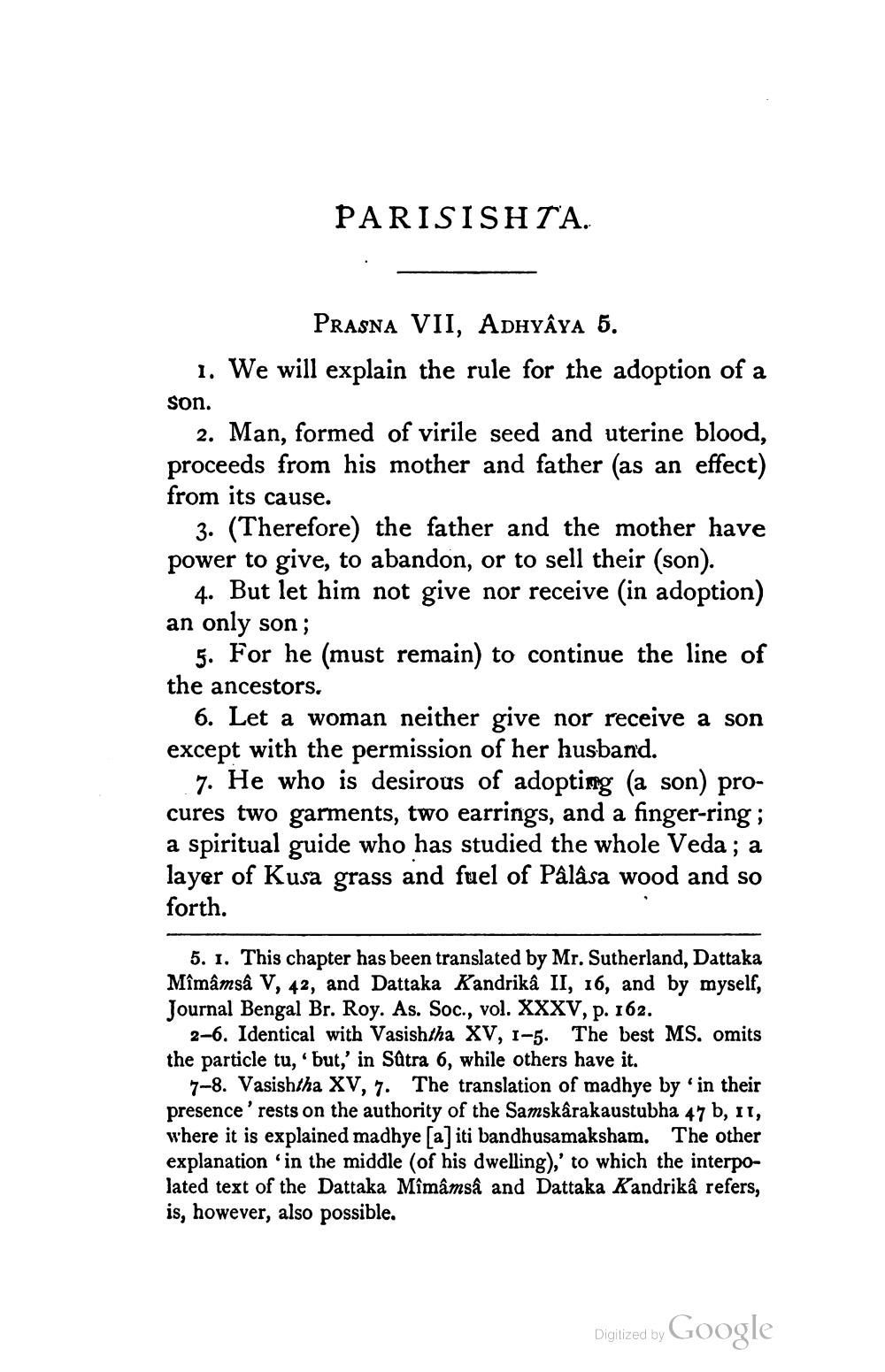________________
PARISISHTA.
PRASNA VII, Adhyâya 5. 1. We will explain the rule for the adoption of a son.
2. Man, formed of virile seed and uterine blood, proceeds from his mother and father (as an effect) from its cause.
3. (Therefore) the father and the mother have power to give, to abandon, or to sell their (son).
4. But let him not give nor receive (in adoption) an only son;
5. For he (must remain) to continue the line of the ancestors.
6. Let a woman neither give nor receive a son except with the permission of her husband.
7. He who is desirous of adopting (a son) procures two garments, two earrings, and a finger-ring; a spiritual guide who has studied the whole Veda; a layer of Kusa grass and fuel of Paläsa wood and so forth.
5. I. This chapter has been translated by Mr. Sutherland, Dattaka Mîmâmsa V, 42, and Dattaka Kandrikâ II, 16, and by myself, Journal Bengal Br. Roy. As. Soc., vol. XXXV, p. 162.
2-6. Identical with Vasishtha XV, 1-5. The best MS. omits the particle tu, 'but,' in Sätra 6, while others have it.
7-8. Vasishtha XV, 7. The translation of madhye by 'in their presence 'rests on the authority of the Samskârakaustubha 47 b, 11, where it is explained madhye a] iti bandhusamaksham. The other explanation in the middle (of his dwelling),' to which the interpolated text of the Dattaka Mîmâmsa and Dattaka Kandrikâ refers, is, however, also possible.
Digitized by Google




